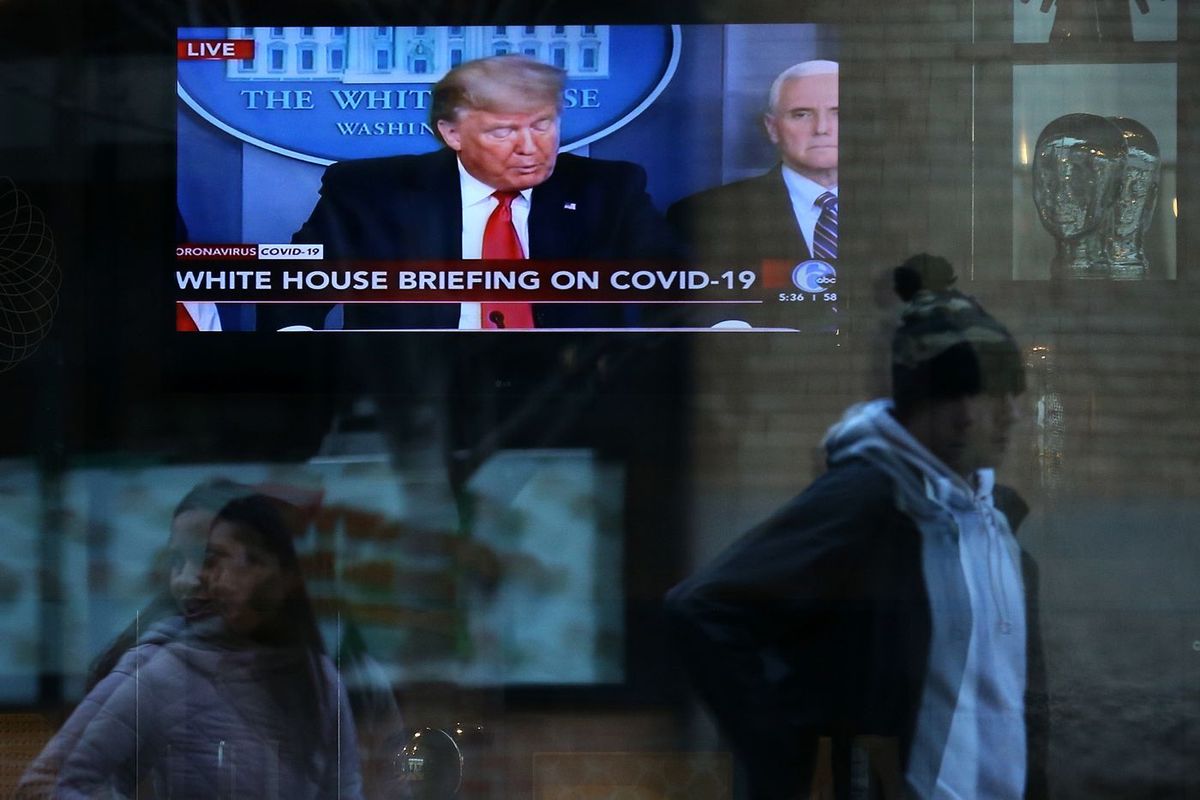US now has most coronavirus cases in the world

A few minutes every morning is all you need.
Stay up to date on the world's Headlines and Human Stories. It's fun, it's factual, it's fluff-free.
As of March 27, the United States has 85,612 recorded novel coronavirus (SARS-CoV-2) cases, making it the nation with the most known cases across the globe. Over 1,000 of its people have died. In China, Spain and Italy, the death rate is higher, however, as thousands more have succumbed to the virus.
While some scientists had predicted the US would be hit hard by the virus, others accuse the government of not acting early on in taking the threat seriously enough when it was still largely confined to China.
“The rate of new infections is doubling every three days,” said Andrew Cuomo, the governor of New York, on March 24. “You want a pat on the back for sending 400? We need 30,000,” he noted in reference to the Trump Administration dispatching additional ventilators to New York, the state hardest hit by the virus thus far.
According to US President Donald Trump, the increased number of reported cases is “a tribute to the amount of testing that we’re doing.” Vice President Mike Pence says that over 550,000 tests have been conducted nationwide.
Temporary economic reality?
Claims of joblessness skyrocketed to over 3 million last week, the highest ever in US history, passing the previous record of 695,000 in 1982 as many states shut down ‘nonessential’ business and implemented partial lockdowns.
Some officials are communicating to the American public that the current economic situation is not the norm. “This is a unique situation. People need to understand, this is not a typical downturn,” said Federal Reserve Chairman Jerome Powell. “At a certain point, we will get the spread of the virus under control… So you may well see a significant rise in unemployment, a significant decline in economic activity. But there can also be a good rebound on the other side of that.”
US Treasury Secretary Steven Mnuchin also argues that the jobless numbers “right now aren’t relevant,” since many of these individuals should be rehired after the government’s US$2.2 trillion economic relief package is implemented.
Paul Krugman, an economist who generally advocates for strong government responses to economic uncertainty, said the current crisis is not similar to previous downturns.
“Will the stimulus bill help? Not much – because it really isn’t stimulus, nor should it be,” tweeted Krugman. “This isn’t a conventional recession, it’s more like a medically induced coma; we want workers to stay home, and give them disaster relief, which is what the bill mostly does.”
Prediction model
Social scientists at the Washington D.C.-based think tank, the Center for Strategic and International Studies (CSIS), have outlined their vision of what it would take to prevent the ongoing coronavirus spread in the US. In their model scenario, short-term travel bans and border closures would have little effect.
Early preventative measures, however, like quarantines and testing, are critical, as well as the need for global cooperation and strong public-private partnerships for cure and treatment innovations. “A critical ingredient for addressing pandemics is public order and obedience to protocols, rationing, and other measures that might be needed.”
[article_ad]
Have a tip or story? Get in touch with our reporters here!




Comments ()